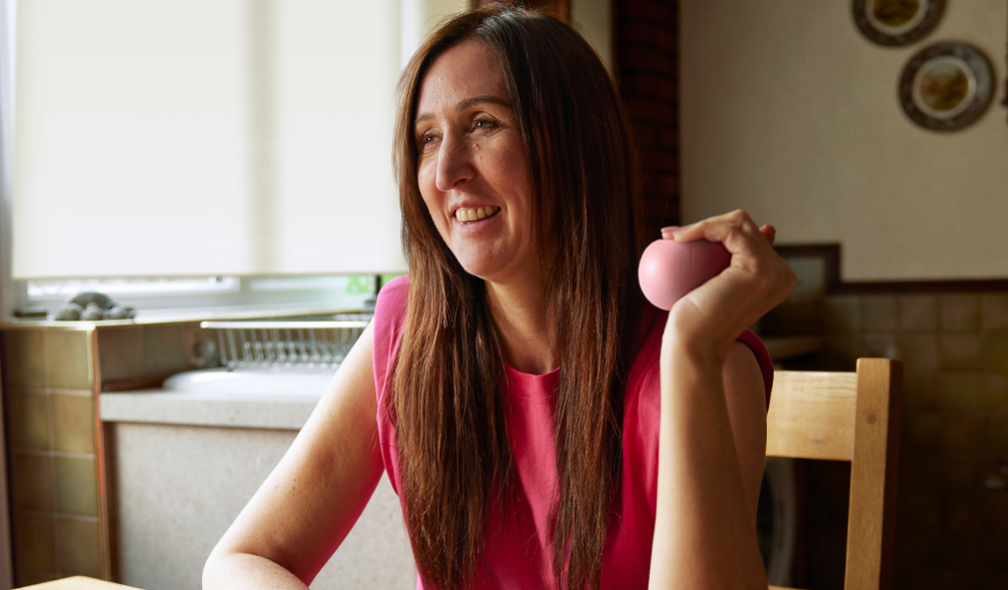Zoe’s story
“It is fundamentally okay to fail.”
After her stroke, Zoe created her own small exercises to start rebuilding her strength and mobility.
Zoe’s stroke was caused by a complication of an undiagnosed heart condition, and she experienced fatigue and reduced energy levels when she was discharged from hospital. But Zoe is a great believer in the quote “Everything starts with you”. So, she started journaling to help her through the harder days and found support in several community led stroke groups. Today, she’s pleased to be giving back to those groups that helped her so much by showing them the little tips and activities that have helped her recovery.
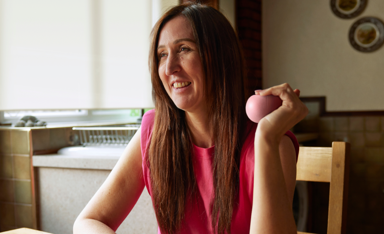
Video transcript
I was unbelievable, I was just like [demonstrates difficulty coordinating her arm].. and I hit myself in the eye so many times with the brush and the hairdryer because I just couldn't get the movements right.
When I had my stroke, even in the early days, even while I was in hospital, I was doing things to try and help get mobility back in my left side. So even trying to move earplugs in the hospital was a big part of me starting to help myself. I would say consistency of small levels of exercise are absolutely vital to recovery. Squeezing pegs, using exercise bands, just to help get that movement back in those parts of your body that you are unable to move.
It is fundamentally okay to fail. In the early stages of my stroke recovery I didn't want to see friends, but with the confidence of going out and doing exercise, I'm now seeing friends, I'm socialising again, I'm going to restaurants, I'm actually enjoying the things that I love.
How Zoe gets moving
Zoe started small and began to rebuild her strength and mobility with home exercises like clipping clothes pegs to a glass. She progressed to squeezing her trusty stress ball, and is now back to using a variety of exercise bands and light weights at home. In her experience, Zoe notices that when she isn’t active her left side becomes numb, and says that consistent exercise “played a major part” in enabling her to return to the activities she was doing before her stroke, like driving, going to restaurants with friends, and styling her hair just the way she likes it.
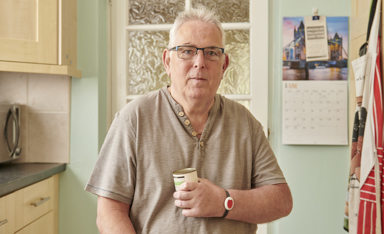
Stroke
Stroke affects everyone in different ways. This can include how your body works and how you think and feel. Being physically active after a stroke can be challenging because of fatigue or muscle weakness. But starting to move more can help with your recovery and wellbeing.
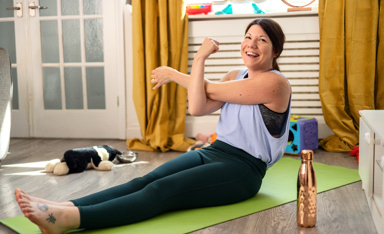
Getting active at home
Who said you have to be outdoors to get moving? There’s plenty that can be done at home to stay active.
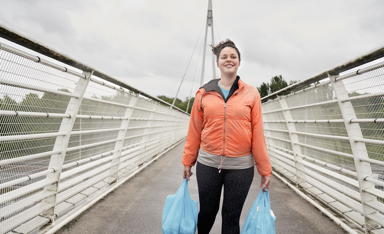
Building activity into your routine
Getting active doesn’t need to be about doing traditional exercises. It can just be about doing things that fit into your daily routine, as and when you can. Building activity into your regular routine is one of the best ways you can start to build a new habit.
